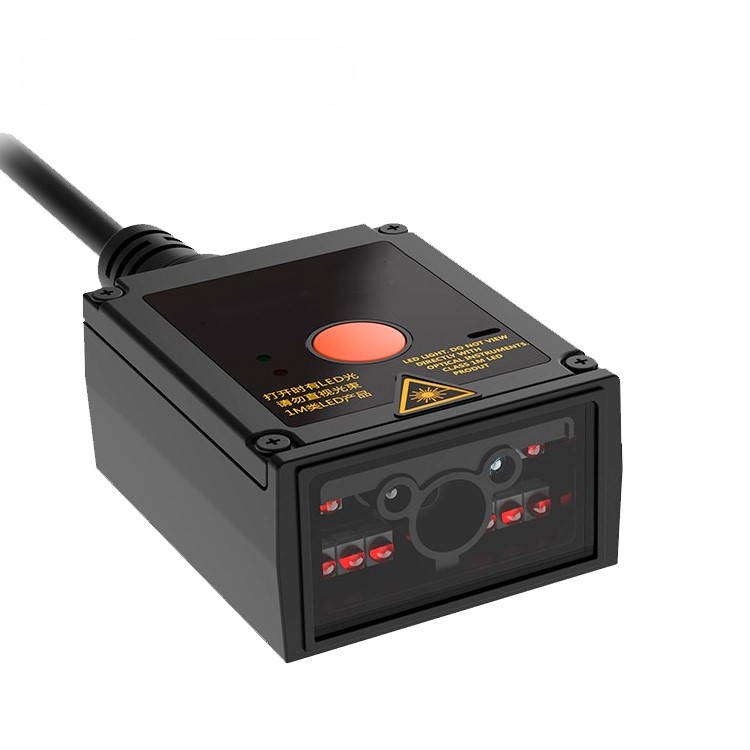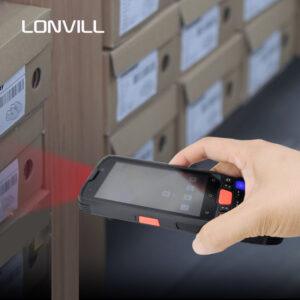Industrial IoT demands precise and reliable scanning solutions. Fixed scanners, at the heart of automated processes, require adaptable optical engines. Standard models often fail in complex industrial environments. Customizable optical engines enable tailored performance. They ensure high compatibility across diverse sectors. From manufacturing to logistics, these engines support critical operational needs. Optimizing an optical engine enhances reliability and long-term stability. Furthermore, industries increasingly demand low maintenance and consistent performance. By designing scanners with configurable modules, manufacturers achieve superior operational efficiency. This article explores how optical engines can be customized, their technical advantages, and their applications in industrial IoT.
Understanding Fixed Scanners in Industrial IoT
Fixed scanners are essential for automation, monitoring, and data acquisition. They capture high-resolution images or barcodes for analysis. In industrial IoT, the volume of scanned data grows exponentially. Standard scanners often struggle with speed or environmental factors. Dust, vibrations, and lighting changes affect performance. A customizable optical engine addresses these limitations. By integrating adjustable focus lenses and sensor modules, scanners maintain accuracy. They also reduce downtime caused by environmental interference. Additionally, software-configurable optics allow adaptation to diverse operational needs. Industries such as warehousing, assembly lines, and smart factories benefit significantly. Fixed scanners with tailored optics improve throughput and reduce operational risks. The result is a more reliable industrial IoT ecosystem.
 Key Advantages of Customizable Optical Engines
Key Advantages of Customizable Optical Engines
Enhanced Compatibility Across Industries
Different sectors impose unique scanning requirements. Logistics requires rapid barcode recognition, while healthcare prioritizes precision. Customizable optical engines provide adjustable parameters. They support multiple wavelengths, resolution settings, and scanning ranges. This flexibility ensures the same scanner can function in diverse environments. Industries no longer need multiple device models. One adaptable optical engine can meet many operational demands. Moreover, future upgrades are simpler. Modules can be swapped or upgraded without replacing the entire scanner. This reduces cost and maximizes investment value.
Improved Reliability and Accuracy
Industrial processes demand consistent performance. Customizable optical engines incorporate robust sensor arrays and optical calibration. These features minimize scanning errors and improve data integrity. Adaptive optics compensates for variations in target distance or reflectivity. Additionally, industrial-grade components resist vibration, dust, and temperature fluctuations. This design enhances long-term reliability. Accuracy remains high even in harsh conditions. Enhanced reliability also reduces maintenance frequency. Enterprises experience fewer interruptions, ensuring continuous productivity.
Scalability and Modular Design
Optical engines designed for modularity allow easy scaling. For large-scale deployments, scanners can be customized for varying resolutions and field-of-view requirements. Modules can be integrated into larger IoT networks. Each scanner communicates data efficiently to central systems. Modular design also simplifies repairs. Faulty components can be replaced without impacting the entire system. This approach improves operational efficiency and reduces lifecycle costs.
Technical Considerations for Customization
Sensor Selection and Integration
Choosing the correct sensor type is critical. CMOS or CCD sensors offer distinct advantages. CMOS sensors provide faster readout speeds. CCD sensors deliver higher image quality. Customizable engines allow selection based on application needs. Integration of sensors with optical lenses and illumination ensures precise performance. Proper sensor alignment prevents distortion and enhances scanning accuracy.
Optical Lens and Focus Adjustment
The lens design determines resolution and depth of field. Adjustable focus mechanisms enable scanning of objects at different distances. For industrial IoT, this ensures consistent performance in dynamic environments. Anti-reflective coatings reduce interference from ambient lighting. Customized lenses also support multi-wavelength scanning, broadening compatibility with different barcode standards and surface materials.
Illumination and Lighting Control
Proper illumination is vital for scanning performance. Custom optical engines often include configurable LED arrays or laser modules. Adjustable brightness and angle improve recognition rates. Lighting control mitigates errors caused by reflective surfaces or variable ambient light. For example, in warehouse logistics, changing lighting conditions no longer affect scanning accuracy. Controlled illumination also reduces eye strain for operators.
Software Integration and Calibration
Customization extends beyond hardware. Software calibration allows precise tuning of scanning parameters. Optical engines can adapt to different codes, labels, or surfaces. Intelligent algorithms detect and correct focus or exposure errors automatically. Integration with industrial IoT platforms ensures seamless data transmission. Remote monitoring and updates further enhance reliability and scalability.
 Applications Across Industries
Applications Across Industries
Logistics and Supply Chain
In logistics, barcode scanning speed and accuracy directly affect throughput. Customizable optical engines optimize read ranges and recognition rates. They handle different package sizes and materials. Fixed scanners with tailored optics integrate into conveyor systems, reducing bottlenecks. Real-time data collection improves inventory management and operational efficiency.
Manufacturing and Automation
Manufacturing processes demand precise tracking of components and products. Custom optical engines allow scanners to read tiny serial numbers or QR codes accurately. Adjustable focus and illumination ensure high accuracy on moving production lines. Reliable scanning reduces assembly errors and supports traceability. This capability is essential for Industry 4.0 initiatives.
Healthcare and Pharmaceuticals
In healthcare, accurate scanning is critical for patient safety and inventory control. Customizable optical engines provide high-resolution scanning for medication labels or laboratory samples. Adjustable lighting and lens systems accommodate different packaging materials. Reliable scanning minimizes human errors and supports regulatory compliance. Integration with IoT systems enables real-time tracking of medical assets.
Retail and Smart Stores
Retail applications benefit from scanners that quickly identify products in various conditions. Custom optical engines ensure accurate recognition of barcodes on reflective packaging. Modular design allows upgrades to support new product types or labeling standards. Integration with IoT solutions enhances stock monitoring and reduces checkout delays.
Challenges and Solutions in Customization
Customization introduces complexity in design and manufacturing. Selecting optimal components requires expertise. Integration with industrial IoT networks may require protocol adjustments. However, standardized modular approaches reduce these challenges. Predefined sensor, lens, and illumination modules simplify assembly. Automated calibration tools accelerate deployment. Manufacturers gain predictable performance while retaining flexibility. Moreover, future-proof designs allow seamless adaptation to emerging IoT applications.
Future Trends in Optical Engine Customization
Emerging industrial IoT applications demand smarter scanners. Integration with AI-powered image recognition is increasing. Optical engines will incorporate adaptive optics and self-calibration. Multi-sensor fusion will enhance accuracy and reliability. Energy-efficient illumination modules will reduce power consumption. Customizable engines will remain central to next-generation fixed scanners. They will support evolving standards and enable data-driven operational insights.
Conclusion: Maximizing Industrial IoT Efficiency
Customizable optical engines transform fixed scanners into versatile, reliable, and precise tools. By adjusting sensors, lenses, illumination, and software, manufacturers achieve superior compatibility across industries. Modular designs enhance scalability, reduce maintenance, and lower lifecycle costs. From logistics to healthcare, these engines support high-performance industrial IoT applications. Future developments in AI integration and adaptive optics will further enhance efficiency. Investing in customizable optical engines ensures long-term operational success and maximized productivity.









Leave a reply